
Tripping the Prom Queen
Also by Susan Shapiro Barash
A Passion for More:
Wives Reveal the Affairs That Make or Break Their Marriages
Sisters:
Devoted or Divided
The Men Out There:
A Womans Little Black Book
(with Michele Kasson, Ph.D.)
Second Wives:
The Pitfalls and Rewards of Marrying Widowers and Divorced Men
Mothers-in-Law and Daughters-in-Law:
Love, Hate, Rivalry and Reconciliation
Reclaiming Ourselves:
How Women Dispel a Legacy of Bad Choices
Women of Divorce:
Mothers, Daughters, Stepmothersthe New Triangle
The New Wife:
The Evolving Role of the American Wife
Tripping the Prom Queen
The Truth About Women and Rivalry
Susan Shapiro Barash
St. Martins Press  New York
New York
A Note to the Reader: Reference in this book to Web sites and other resources as potential sources of additional information does not mean that either the author or the publisher endorses anything that might be said in such material. Neither the author nor the publisher has control over, or is responsible for, the content or policies of this material.
TRIPPING THE PROM QUEEN. Copyright 2006 by Susan Shapiro Barash. All rights reserved. Printed in the United States of America. No part of this book may be used or reproduced in any manner whatsoever without written permission except in the case of brief quotations embodied in critical articles or reviews. For information, address St. Martins Press, 175 Fifth Avenue, New York, N.Y. 10010.
www.stmartins.com
Book design by Irene Vallye
Library of Congress Cataloging-in-Publication Data
Barash, Susan Shapiro, 1954
Tripping the prom queen : the truth about women and rivalry/by Susan Shapiro Barash.
p. cm.
ISBN 0-312-34231-4
EAN 978-0-312-34231-9
1. WomenLife skills and guides. 2. WomenPsychology. I. Title.
HQ1221.B245 2006
302.54082dc22
2005044416
First Edition: March 2006
10 9 8 7 6 5 4 3 2 1
For my mother,
the fairest of them all
Authors Note
This book is based on extensive personal interviews with women and experts in the fields of psychology and counseling. Names have been changed and recognizable characteristics disguised for all people in the book, except the contributing experts, in order to protect their privacy. Some characters are composites.
Contents
In the misfortunes of our best friends we always
find something not altogether displeasing to us.
La Rochefoucauld
She must learn to compete not as a woman,
but as a human being.
Betty Friedan
Tripping the Prom Queen
Introduction
Facing the Dark Mirror
All my life, Ive relied upon the kindness of women.
I had a terrific relationship with my mother, who supported my earliest efforts to explore the world and discover a sense of myself. I had wonderful girlfriends, pals who were good for everything from a carefree shopping trip downtown to long, serious discussions about the meaning of life. When I got to college, I was fortunate to find female professors and mentors who nurtured and challenged me while offering a wide variety of role models for how to make my own way in the academic world. When I began teaching gender studies at Marymount Manhattan College, I found smart, interesting, and supportive colleagues with whom I could discuss the latest developments in our respective fields while sharing my feelings about the complicated business of balancing marriage, motherhood, and a career. And as I watched my own daughters become lovely young women with a world of promise before them, I cherished the thought that they were so much more self-confident than I had ever been, and would have so many more opportunities than Id ever had.
I knew that partial credit for my good fortune went to the womens movement, which had proclaimed in the early 1970s the value of sisterhood. Women, oppressed by men for generations, had finally realized that we needed to look out for each other. Luckily, solidarity came without effort to our kind and generous natures, once we had seen through the dangerous illusions of patriarchy.
Okay, whats wrong with this picture?
In fact, its all true. I have been blessed with wonderful friends, colleagues, and family. And the womens movement has contributed enormously to our understanding of the kinds of bonds that women can build with one another.
But, like virtually every other woman I have ever met, Ive also known the dark side of female bonding. Ive had conflicts with my mother, my daughters, my girlfriends, my colleagues, with women whom I thought were my friends, with women whom I learned not to trust. Ive been the subject of gossip, betrayals, backstabbing, catfight-ing. Ive found myself enmeshed in relationships marked by unexpected competition, envy, and jealousy. And in both my own life and the lives of other women, I have seen how female friendship can be both empowering and disabling, a source of rock-solid strength as well as a mire of treachery, deceit, and misunderstanding.
Im reminded of my friends Cynthia and Elinor, whose bitter falling-out sent shock waves through our entire circle of friends. These two women had been close since college, having settled in the same midwestern city, and their blend of intimacy and rivalry seemed to work for them. When Cynthia went into business for herself as a marketing consultant, it was largely Elinors mixture of support and prodding that had gotten her to take the leap. A few years later, Elinor began thinking of setting up her own consultancyand Cynthia was there to challenge and encourage her. For nearly two decades it seemed that their friendly competition was actually good for them both, spurring each woman on to new achievements even as she continually measured her accomplishments against those of her friend.
Then Cynthia got engaged. Both women had had brief, unhappy first marriages and a long stretch of relatively satisfactory dating, but when Cynthia found her new love, Elinor was going through a dry spell, feeling lonely and unappreciated. The lack of male attention was particularly hard on Elinor, a stylish, exuberant woman who was known for taking center stage at any party.
Although Elinor herself didnt particularly want to get married, she had a hard time watching Cynthia snag what society still considers a womans ultimate prize. And when she learned that her wedding invitation was for one only, she was outraged.
How can she expect me to show up at her wedding without a date? she fumed to any of us who would listen. All of her other friends are married. There wont even be anyone there for me to dance with! Its her big day, surebut does she have to rub it in that Im alone?
Cynthia, for her part, was deeply wounded that Elinor seemed more interested in her lack of dance partners than in Cynthias wedding. Ive waited so long to find someone, and now that I have, she cant even be happy for me, shed say tearfully to me and our other friends. Cant she ever think of anyone besides herself?
Eventually, Elinor confronted Cynthia in an angry conversation that left both of them hurt and upset. By mutual agreement, Elinor stayed away from the wedding, and the twenty-year friendship ended. When I thought of how much the two women had meant to each other and how intensely each of them had approached this final encounter, I was shaken by the idea that female rivalry could run so deep. What had seemed a friendly and useful competition had turned into a painful contest.
Next page
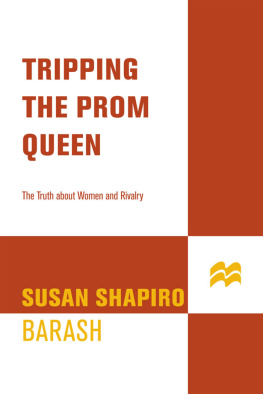


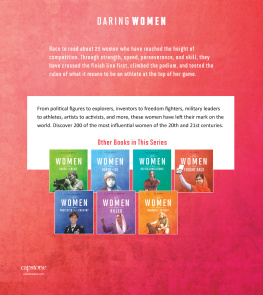
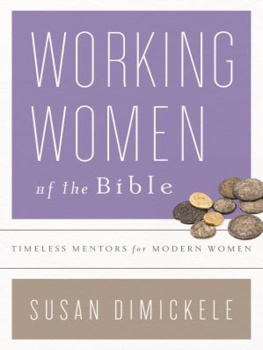
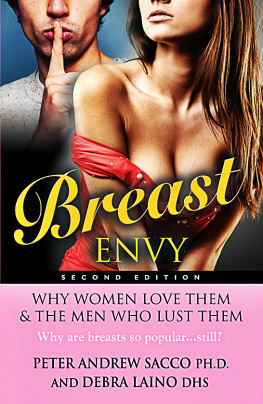
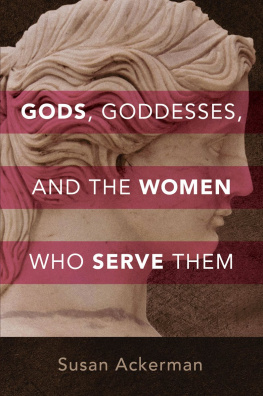
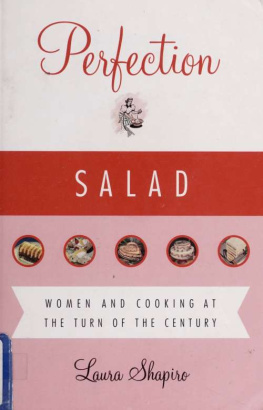
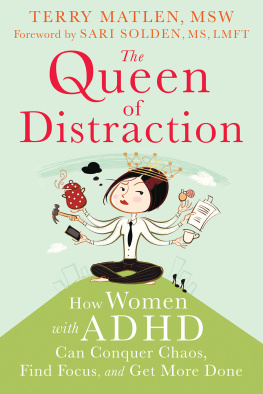

 New York
New York